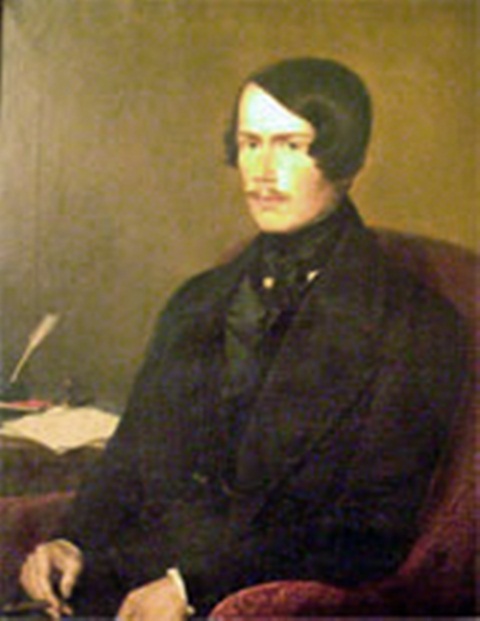Hermann, Prince of Wied
| Hermann | |||||
|---|---|---|---|---|---|
| Prince of Wied | |||||
 |
|||||
| Born |
22 May 1814 Neuwied, Duchy of Nassau |
||||
| Died | 5 March 1864 (aged 49) Neuwied, Duchy of Nassau |
||||
| Spouse | Princess Marie of Nassau | ||||
| Issue |
Elisabeth, Queen of Romania William, Prince of Wied Prince Otto |
||||
|
|||||
| House | House of Wied-Neuwied | ||||
| Father | Johann August Karl, Prince of Wied | ||||
| Mother | Princess Sophie Auguste of Solms-Braunfels | ||||
| Full name | |
|---|---|
| German: Wilhelm Hermann Karl |
Hermann, Prince of Wied (German: Wilhelm Hermann Karl Fürst von Wied; 22 May 1814 – 5 March 1864) was a German nobleman, elder son of Johann August Karl, Prince of Wied. He was the father of Queen Elisabeth of Romania and grandfather of William, Prince of Albania.
Hermann was the second child and first son of Johann August Karl, Prince of Wied (1779–1836), son of Friedrich Karl, Prince of Wied and Countess Marie of Sayn-Wittgenstein-Berleburg, and his wife, Princess Sophie Auguste of Solms-Braunfels (1796–1855), daughter of William, Prince of Solms-Braunfels and his wife Countess Auguste of Salm-Grumbach.
In 1842, along with 20 other representatives of the German nobility, Prince Hermann founded the "Adelsverein, Society for the Protection of German Immigrants in Texas".
The settlement of New Wied, Texas, a few miles north of New Braunfels on the Guadalupe River located on the eastern side of Comal County, was established after more than 300 German settlers in the New Braunfels region died in the epidemic of 1846. The society also established the village of Wied, Texas in Lavaca County.
Hermann purchased a share in the society after he became engaged to the sister of Wilhelm, Duke of Nassau, the protector of the society. He took no active part in the society until 1847, when it became apparent that because of debts and dissension, a new, more businesslike approach had to be taken in order to save the reputations and investments of the noblemen. Starting in 1847, Hermann’s director of business affairs, August von Bibra became actively involved in the affairs of the Verein; and, when the prince was elected president of the society in 1851 following Carl, 3rd Prince of Leiningen, Bibra took over complete management of the enterprise. Bibra struggled for more than ten years to repay the Verein debts and to revitalize the emigration program.
...
Wikipedia
